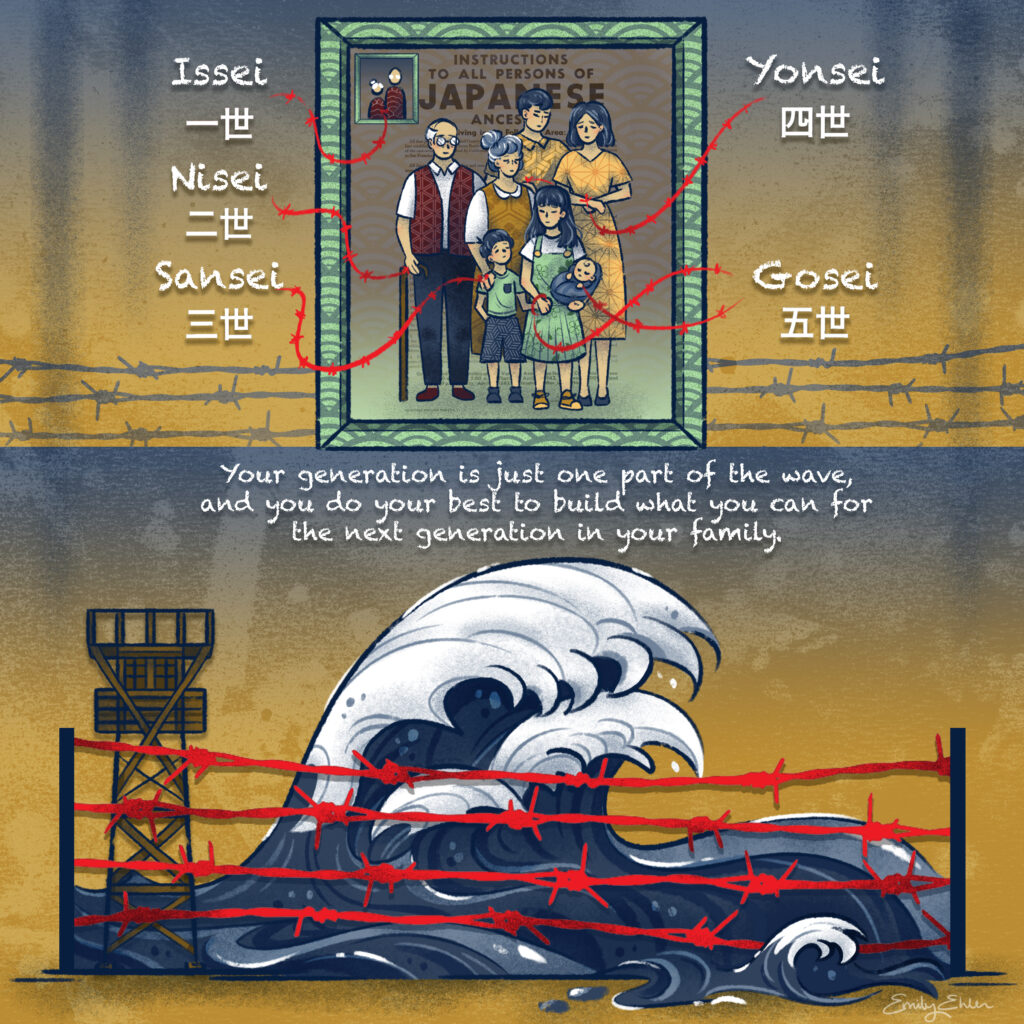Summary
The Oral History Center is proud to announce the launch of the Japanese American Intergenerational Narratives Project, featuring 100 hours of oral history interviews with 23 Japanese American narrators who are survivors and descendants of two World War II-era sites of incarceration: Manzanar in California and Topaz in Utah. The majority of these oral histories are live on the Oral History Center website, where you can learn more about the project and the interviews themselves.

The Oral History Center is proud to announce the launch of the Japanese American Intergenerational Narratives Project, featuring 100 hours of oral history interviews with 23 Japanese American narrators who are survivors and descendants of two World War II-era sites of incarceration: Manzanar in California and Topaz in Utah. The majority of these oral histories are live on the Oral History Center website, where you can learn more about the project and the interviews themselves.
Just a couple of months after the United States entered World War II, President Franklin D. Roosevelt signed Executive Order 9066 on February 19, 1942. This order authorized the government to forcibly remove more than 120,000 Japanese American civilians—even American-born citizens—from their homes on the West Coast, and put them into incarceration camps shrouded in barbed wire and patrolled by armed guards for the duration of the war. This imprisonment uprooted families, disrupted businesses, and dispersed communities—impacting generations of Japanese Americans.
Even as the intergenerational impacts of World War II-era incarceration still touch many Japanese American descendants today, some Americans remain unaware of this history. It was in the spirit of illuminating the wounds of incarceration that OHC interviewers Roger Eardley-Pryor, Shanna Farrell, and Amanda Tewes embarked on this series of oral histories to record the stories of child survivors and descendants. Using healing as a throughline, these life history interviews explore identity, community, creative expression, and the stories family members passed down about how incarceration shaped their lives.
The project began in 2021 with funding from the National Park Service’s Japanese American Confinement Sites Grant. The interviews were conducted remotely via Zoom due to the global COVID-19 pandemic. The OHC team gathered a group of stakeholders with ties to the community to advise the project. Dr. Lisa Nakamura, a clinical psychologist who is herself a descendant of the Topaz incarceration camp, led Healing Circles for the project narrators after their interviews to process the experience without the interviewers present.
In addition to the oral histories, the OHC team produced a podcast as Season 8 of The Berkeley Remix to highlight the narrative themes that emerged from the interviews. They also commissioned artist Emily Ehlen, who created ten illustrations based upon stories and themes recorded in the interviews.
The podcast, “‘From Generation to Generation’: The Legacy of Japanese American Incarceration,” is a four-episode season featuring stories of activism, contested memory, identity and belonging, as well as artistic expression and memorialization of incarceration. It was produced by Rose Khor, Roger Eardley-Pryor, Shanna Farrell, and Amanda Tewes, and narrated by Devin Katayama. All four episodes are live on the OHC’s SoundCloud and in your podcast feeds.
Emily Ehlen’s artwork can be found on the OHC’s blog website and is available for download for educational purposes. Roger Eardley-Pryor sat down with Emily to learn more about her background, her work, and her process of creating these graphic illustrations.
Please explore the oral history transcripts and videos, listen to season 8 of The Berkeley Remix, and view Emily Ehlen’s artwork for more about the OHC’s Japanese American Intergenerational Narratives Project.
A special thanks to the National Park Service’s Japanese American Confinement Sites Grant for funding this project.
The views and conclusions contained in this document are those of the authors and should not be interpreted as representing the opinions or policies of the U.S. Government. Mention of trade names or commercial products does not constitute their endorsement by the U.S. Government.
ABOUT THE ORAL HISTORY CENTER
The Oral History Center of The Bancroft Library preserves voices of people from all walks of life, with varying political perspectives, national origins, and ethnic backgrounds. We are committed to open access and our oral histories and interpretive materials are available online at no cost to scholars and the public. You can find our oral histories from the search feature on our home page. Search by name, keyword, and several other criteria. Sign up for our monthly newsletter featuring think pieces, new releases, podcasts, Q&As, and everything oral history. Access the most recent articles from our home page or go straight to our blog home.
Please consider making a tax-deductible donation to the Oral History Center if you would like to see more work like this conducted and made freely available online. The Oral History Center is a predominantly self-funded research unit of The Bancroft Library. As such, we must raise the funds to cover the cost of all the work we do, including each oral history. You can give online, or contact us at ohc@berkeley.edu for more information about our funding needs for present and future projects.